ProKalm - Affect on Itching
QUESTION: Does an oral supplement containing Melissa Officinalis extract and L-Theanine on decrease owner reported itching in horses?
Background
- The itch-scratch cycle can have a behavioral component1. Additionally, in humans, depression and anxiety are frequently associated with the itch-scratch cycle2.
- Melissa Officinalis extract and L-Theanine have anxiolytic and anti-oxidative properties3,4. An equine supplement containing these compounds (ProKalm, Science Supplements) has previously been demonstrated to modify equine behavior (see ProKalm behavior study).
Aim of Study
To evaluate ProKalm for reducing itch in chronically itchy horses.
Study Design
- Placebo-controlled = some horses received the active supplement and some received a supplement with no active ingredients (placebo). Use of a placebo helps reduce bias (seeing a false positive result) and allows for the fact that an improvement might be observed from horses spontaneously improving.
- Randomized = which horses were given placebo was pre-determined by a random system rather than a person deciding at the time of seeing a horse. This removes bias in the results caused by selecting only certain horses (e.g. less itchy horses) to have a particular treatment.
- Blind = owners did not know if their horses received the active supplement and or placebo supplement. Blinding removes bias caused by people wanting to see a positive effect with the active supplement.
- Crossover trial = all horses received both active supplement and placebo allowing the response of an individual horse to each treatment to be compared. Crossover trials are potentially more efficient than similar sized, parallel group trials in which each horse is exposed to only one treatment.
- Washout = the time between treatments (active supplement and placebo). A washout period of time allows the treatment from the first period to be washed out of the patient's system.
Study Outline
Horses with a history of chronic (over 6 months) itch were recruited. Eight horses with a veterinary diagnosis of sweet itch (SI) were selected as well as nine horses NOT considered to be related to SI (other itch, OI). Owners fed either the active supplement (64g ProKalm) or placebo (64g rice flour only) split between morning and evening feeds for 7 days. Additionally, owners reported a daily score of their horse’s itchiness on a scale from 0 (none) to 10 (very severe). Half the horses in each group (SI and OI) randomly received the active supplement first and then the placebo and half received the placebo and then the active supplement. A 7-day washout period was given between supplements. Owners did not know: a) the order in which their horse received active supplement or placebo or b) the ingredients of the supplement.
Study Results
- Pre-trial itch scores were not significantly different between active or placebo supplement groups when all horses were considered together or by itch group (SI/OI) indicating all horses were of a similar severity at the start of the trial.
- When all 17 horses were considered together there was a significant reduction in itch score when receiving both active supplement and placebo (Fig. 1). A beneficial effect produced by a placebo is considered to be due to the owner’s belief in that treatment.

Fig. 1: Owner-reported itch scores for 17 horses with chronic itching (8 sweet itch; 9 other itch) before (pre-trial) and after (post-trial) 7 days of oral active or placebo supplement. Both active and placebo supplements showed a significant decrease in median itch score following supplementation (P=0.007; P=0.008 respectively).
- When the itch groups were considered separately, a significant reduction in itch score was observed only in OI horses fed active supplement (Fig. 2) and SI horses fed placebo (Fig. 3).

Fig. 2: Owner-reported itch scores for 9 horses with other itch only before (pre-trial) and after (post-trial) 7 days of oral active or placebo supplement. Horses had a significantly reduced itch score following active supplement only (P=0.016).

Fig. 3: Owner-reported itch scores for 8 horses with sweet itch only before (pre-trial) and after (post-trial) 7 days of oral active or placebo supplement. Horses had a significantly reduced itch score following placebo supplement only (P=0.016).
Take Home Message
- ProKalm significantly reduced itch scores for horses with itching not associated with sweet itch. Some horses with sweet itch were also reported to show improvement, though not significantly.
- The dose of Melissa Officinalis extract and L-Theanine used in this study is considered low-medium and therefore feeding at a higher dose and/or a longer period than 7 days may be useful in non-responsive cases.
References
- Shumaker, A.K. 2019 Diagnosis and Treatment of Canine Acral Lick Dermatitis. Vet Clin North Am Small Anim Pract. 49(1):105-123.
- Jafferany, M. and Davari, M. E. (2019) Itch and psyche: psychiatric aspects of pruritus. Int J Dermatol, 58: 3-23.
- Miraj S, Rafieian-Kopaei, Kiani S. (2017) Melissa officinalis L: A Review Study with an Antioxidant Prospective. J Evid Based Complementary Altern Med.;22(3):385–394.
- Shakeri A, Sahebkar A, Javadi B. (2016) Melissa officinalis L. - A review of its traditional uses, phytochemistry and pharmacology. J Ethnopharmacol. 188:204-28.

